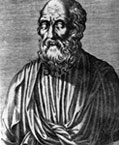Some historical facts about how today’s teachings on the afterlife developed.
Before the birth of Jesus, there were many groups of Jews who held the same view as the Old Testament writers about life and death, that is, conditional immortality (eternal life to follow the resurrection, provided God’s conditions have been met in this life) with the wicked being reduced to ashes. The Books of Tobit, Ecclesiasticus, (in the Apocrypha) and the Sibyllines were among these; the Essene Dead Sea Scrolls reflect the same views. Second Esdras also in the Apocrypha, talks about the sleep of death and those who are later called forth to life, while the wicked are extinguished. |
 |
There were other writers, though, who followed the Greek philosophy of Plato, teaching that we all have innate immortality. We are born, we have life, and that life will never end. These writers denied the resurrection, and advocated prayers for the dead. The same concepts were introduced into Judaism, leading to a divergence of views among the Jews at the time of Jesus. Christ and the apostles though, clearly taught that death is as a sleep and immortality is conditional. They did not teach Greek philosophy of an unending life for the good and the evil. |
|
The early church fathers also held predominantly to Christ’s teaching, Clement, Ignatius, Barnabas, Hermes and Polycarp,.This period of church history is followed by the Ante-Nicene fathers who began to teach a combination of views.
After this time, ‘eternal torment’ began to compete for supremacy in theological thinking. Tertullian preached that in order to be consistent, since all souls are immortal, the punishment of the wicked had also to be everlasting. He taught about ‘a sacred fire that never consumes, but renews as it burns‘. This fire is eternally killing, but never terminating. John Chrysostum, Jerome, and later Augustine ensured that this doctrine was the major and unchallenged view of the dominant church of the day.
This opinion continued right through the medieval period, but not before some speculated that, if we have life forever after our birth, we must have had a life somewhere before we were born. Plato held this view too, but the idea never substantially took hold during the history of Christianity. It had already begun to die out about AD 544 when these concepts were condemned by the Council of Constantinople.
There was some teaching at this time too, that all would be saved, which avoided any question at all about the fate of unrepentant sinners after death.
Eternal torment remained the accepted teaching for many centuries. The concept of purgatory had been introduced and, in some way, mitigated the horrors of hell fire. This theory was based on the Apochrypha. |
